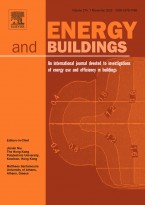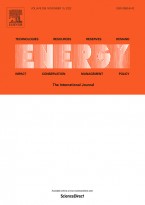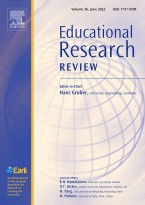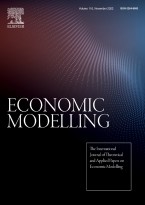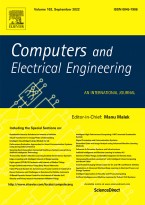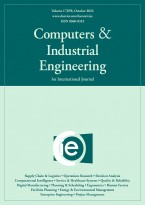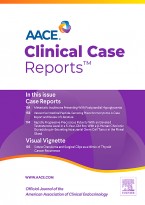
چکیده فارسی
درمان پزشکی موثر برای بیماری کوشینگ می تواند حساسیت به هیپوکورتیزولیسم نسبی را افزایش دهد.
چکیده هدف: پاسیروتاید برای درمان بزرگسالان مبتلا به بیماری کوشینگ (CD) با هیپرکورتیزولیسم پایدار که جراحی برای آنها شکست خورده است یا یک گزینه نیست، تایید شده است. درمان دارویی موثر برای CD ممکن است حساسیت به هیپوکورتیزولیسم نسبی را در طول استرس حاد به دلیل ناتوانی بیمار در جبران با افزایش هورمون آدرنوکورتیکوتروپیک درون زا (ACTH) و ترشح کورتیزول افزایش دهد. ما یک بیمار مبتلا به CD تحت درمان با پازیروتید را به مدت 7 سال توصیف می کنیم که در او اکورتیزولمی بیوشیمیایی به دست آمد اما متعاقباً چندین دوره متمایز از هیپوکورتیزولیسم نسبی را در طول دوره های بیماری حاد تجربه کرد. روشها: مردی 67 ساله با تایید بیوشیمیایی CD، ویژگیهای بالینی و بیوشیمیایی هیپرکورتیزولیسم پایدار را پس از جراحی ترانس اسفنوئیدال نشان داد، علیرغم اینکه تصویربرداری تشدید مغناطیسی هیپوفیز هیچ تومور باقیمانده یا عودکنندهای را نشان نداد. او در یک مطالعه فاز 3 (NCT00434148) ثبت نام شد و دو بار در روز پازیروتید زیر جلدی شروع شد. نتایج: درمان طولانیمدت با پازیروتید سطوح کورتیزول، کورتیزول سرم و ACTH آزاد 24 ساعته ادرار را عادی کرد. بیمار متعاقباً به دیابت نوع 2 مبتلا شد و به طور مؤثر با داروهای خوراکی کاهش قند خون و انسولین درمانی مدیریت شد. در طی یک ارزیابی معمول در کلینیک 79 ماه پس از ثبت نام در مطالعه، او علائمی را که حاکی از هیپوکورتیزولیسم نسبی است در طی سه رویداد سلامت استرسزا حاد در 18 ماه قبل گزارش کرد. نتیجهگیری: دستیابی موفقیتآمیز به اکورتیزولمی با درمان دارویی طولانیمدت ممکن است حساسیت به هیپوکورتیزولیسم نسبی را افزایش داده و علائم نارسایی آدرنال را در طول دورههای استرس حاد در بیماران مبتلا به CD افزایش دهد. توصیه میکنیم که برای پیشگیری از چنین رویدادهایی که میتواند منجر به بحران آدرنال شود، به چنین بیمارانی در مورد دوز استرس گلوکوکورتیکوئیدی مشاوره داده شود. اختصارات: ACTH هورمون آدرنوکورتیکوتروپیک CD بیماری کوشینگ FPG گلوکز پلاسما ناشتا GH هورمون رشد HbA1c هموگلوبین A1c T2DM دیابت نوع 2 TSS جراحی ترانس اسفنوئیدال UFC کورتیزول آزاد ادراری
چکیده انگلیسی
Effective Medical Therapy for Cushing Disease Can Increase the Susceptibility to Relative Hypocortisolism
ABSTRACT Objective: Pasireotide is approved for treatment of adults with Cushing disease (CD) with persistent hypercortisolism for whom surgery has failed or is not an option. Effective medical therapy for CD may increase the susceptibility of relative hypocortisolism during acute stress because of a patient's inability to compensate by increasing endogenous adrenocorticotropic hormone (ACTH) and cortisol secretion. We describe a patient with CD on pasireotide therapy for 7 years in whom biochemical eucortisolemia was achieved but subsequently experienced several distinct episodes of relative hypocortisolism during periods of acute illness. Methods: A 67-year-old man with biochemical confirmation of CD exhibited clinical and biochemical features of persistent hypercortisolism after transsphenoidal surgery despite pituitary magnetic resonance imaging showing no residual or recurrent tumor. He was enrolled into a phase 3 study (NCT00434148) and was initated on twice-daily subcutaneous pasireotide. Results: Long-term pasireotide therapy normalized 24-hour urinary free cortisol, serum cortisol, and ACTH levels. The patient subsequently developed type 2 diabetes mellitus and was managed effectively with oral hypoglycemic agents and insulin therapy. During a routine clinic assessment 79 months after study enrollment, he reported symptoms suggestive of relative hypocortisolism during three distinct substantially acute stressful health events in the preceding 18 months. Conclusion: Successful achievement of eucortisolemia with long-term medical therapy may increase susceptibility to relative hypocortisolism and precipitate symptoms of adrenal insufficiency during periods of acute stress in patients with CD. We recommend that such patients should be counseled on glucocorticoid stress dosing to prevent such events that could lead to adrenal crisis. Abbreviations: ACTH adrenocorticotropic hormone CD Cushing disease FPG fasting plasma glucose GH growth hormone HbA1c hemoglobin A1c T2DM type 2 diabetes mellitus TSS transsphenoidal surgery UFC urinary free cortisol
